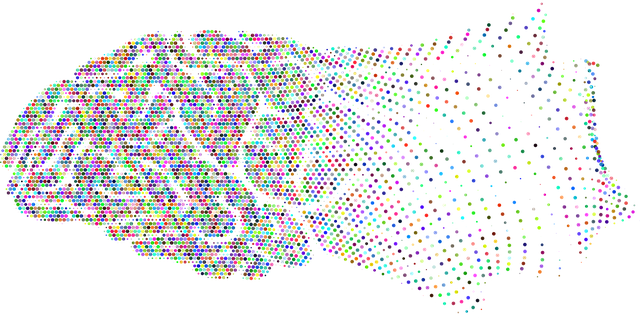Denver Christian Counseling Therapy (DCCT) leverages diverse data collection methods, digital tools, and meticulous data preparation to gather comprehensive insights into clients' mental well-being. Using advanced statistics and machine learning, DCCT uncovers hidden trends, personalizes therapy plans, and enhances crisis interventions. By analyzing demographics, symptoms, and outcomes, they develop targeted programs for common concerns like stress management and trauma support, ensuring culturally sensitive and evidence-based care. DCCT's data-driven approach solidifies its position as a leading provider of compassionate counseling services in Denver and beyond.
Mental health data analysis is a powerful tool in understanding and improving overall well-being. This article explores the process of collecting, preparing, and interpreting mental health data through advanced techniques. From understanding unique challenges like those faced by individuals at Denver Christian Counseling Therapy to identifying patterns, this guide delves into leveraging data for meaningful insights and actionable strategies. By employing sophisticated analysis methods, we can better serve and support clients seeking counseling services.
- Understanding Mental Health Data: Collection and Preparation
- Advanced Analysis Techniques for Deeper Insights
- Interpreting Results: Identifying Patterns and Trends
- Applying Findings at Denver Christian Counseling Therapy
Understanding Mental Health Data: Collection and Preparation

Understanding Mental Health Data is a critical step in providing effective Denver Christian Counseling Therapy. The journey begins with data collection, where various methods are employed to gather information about an individual’s mental health status. This includes self-reported surveys, clinical interviews, and observations, each offering unique insights into a client’s psychological well-being. With the advent of digital tools, electronic health records have become invaluable resources for comprehensive data capture.
Data preparation is a meticulous process that involves cleaning, organizing, and structuring the collected information. This step is crucial in ensuring the accuracy and reliability of subsequent analyses. Normalizing and categorizing data allow healthcare providers to gain deeper insights, identify patterns, and make informed decisions. For instance, integrating Positive Thinking interventions or tailoring Social Skills Training based on individual needs requires a nuanced understanding of the prepared data, ultimately enhancing the effectiveness of Denver Christian Counseling Therapy.
Advanced Analysis Techniques for Deeper Insights

In the realm of mental health data analysis, advanced techniques empower practitioners like those at Denver Christian Counseling Therapy to uncover profound insights. By employing sophisticated statistical methods and machine learning algorithms, professionals can delve into complex patterns within patient data, revealing nuanced trends that might otherwise remain hidden. This level of depth allows for more tailored interventions, such as personalized therapy plans focused on areas like self-esteem improvement and cultivating positive thinking.
Through these advanced analysis techniques, mental health professionals gain valuable tools to provide effective crisis intervention guidance. By understanding the underlying factors contributing to a patient’s condition, therapists can offer targeted support, enhancing the overall effectiveness of treatment. This data-driven approach not only benefits individual patients but also contributes to the broader understanding and improvement of mental health care practices in Denver and beyond.
Interpreting Results: Identifying Patterns and Trends

When analyzing mental health data from Denver Christian Counseling Therapy clients, professionals can gain valuable insights by identifying patterns and trends within the collected information. This involves meticulous examination of various factors such as client demographics, initial presentation of symptoms, treatment modalities used, and therapeutic outcomes. By employing robust statistical methods, therapists and researchers can uncover significant correlations that may not be immediately apparent.
For instance, analyzing trends in emotional regulation strategies employed by clients could reveal effective interventions suitable for diverse populations. Moreover, examining the impact of community outreach program implementation on client outcomes can highlight the importance of cultural sensitivity in mental healthcare practice, ensuring tailored support that respects individual backgrounds and needs.
Applying Findings at Denver Christian Counseling Therapy

At Denver Christian Counseling Therapy (DCCT), we understand that mental health data is a powerful tool for understanding and serving our clients more effectively. By applying insights from data analysis, DCCT can tailor its services to address specific needs within our community. For instance, analyzing trends in client demographics and common concerns can help us develop targeted programs for issues like stress management, anxiety disorders, and trauma support services. This approach ensures that we offer relevant and impactful solutions, such as conflict resolution techniques, tailored to the unique challenges faced by our clients.
Moreover, data-driven insights enable DCCT counselors to prioritize self-esteem improvement initiatives and other therapeutic interventions known to enhance overall well-being. By continuously evaluating client outcomes, we can refine our practices and better equip ourselves to meet the evolving mental health needs of Denver residents. This commitment to evidence-based care ensures that DCCT remains a leading provider of compassionate and effective counseling services in the region.
Mental health data analysis is a powerful tool for understanding and improving individual well-being. By employing advanced techniques and meticulous interpretation, we can gain valuable insights into the complex nature of mental health issues. The process, as demonstrated by Denver Christian Counseling Therapy, showcases how data can be transformed into actionable knowledge, leading to more effective treatment strategies and enhanced patient outcomes. This conclusion underscores the importance of continuous analysis in shaping the future of mental healthcare.














